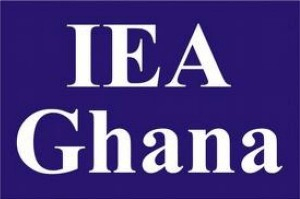Strong political will must back Fiscal Council to succeed – IEA
 The Institute of Economic Affairs (IEA) says the establishment of the Fiscal Council would have to be accompanied by a strong political commitment to support and implement its recommendations.
The Institute of Economic Affairs (IEA) says the establishment of the Fiscal Council would have to be accompanied by a strong political commitment to support and implement its recommendations.
Dr. Eric Osei-Assibey, an Adjunct Research Fellow of IEA and Senior Economist at the University of Ghana, said to ensure the effectiveness of the Council in reprimanding government should it go beyond its fiscal limits, the Council had to be legally independent and without political appointments.
He was speaking at a policy forum, organised by the IEA, in Accra, on Tuesday, on “Making Ghana’s Fiscal Council Work”.
“Where there is legal independence and a bi-partisanship approach to its establishment, you have the buy-in of all stakeholders and thus it will have unbiased forecasting and credibility in its reports, which will make it more effective,” Dr Osei-Assibey stated.
He also stressed the need for the Council to be well-resourced, explaining that a major problem of existing fiscal agencies was that they were not well resourced and thus were not able to deliver on their mandates very well.
“Governments stifle such agencies by not providing the necessary resources for them to function well,” he said.
“If government intends to set up such institution, it must guarantee resources for it.”
Members of the Council, he said, had to be professionals who could engender credibility in the Council.
In his presentation on ‘Making Ghana’s Fiscal Council Work; Country experiences and best practice’ he noted that the poor performance of Fiscal Councils in Kenya, South Africa and Uganda underscored the need for the establishment of the councils to be accompanied by the features he had outlined.
He noted that there were currently 39 fiscal councils around the world, with most of them in the Organisation for Economic Co-operation and Development (OECD) countries.
The country with most effective Fiscal Council, Dr Osei-Assibey said, was Ireland, which had a fiscal deficit of -3.85 per cent of GDP before the establishment of the Council and had since successfully reduced it to
-1.83 percent of GDP.
Chile, on the other hand, had a deficit of -0.6 per cent before the establishment of the Council but which increased to -2.2 per cent of GDP. This, he said, was mainly due to the lack of independence of the Council.
“Fiscal councils with legal independence, and which complement fiscal rules, have more impact on fiscal performance,” he stated.
Mr. Kojo Oppong Nkrumah, a Deputy Minister of Information, commended the IEA for their input on the proposed Fiscal Council, and said the Government was ready to help set up the Council and make it work.
He said though governments always spend money; sometimes to undertake projects, which they believed were politically logical, it was always important to balance that with the micro economic interest of the country; doing it in a manner that did not jeopardise the country’s finances.
He explained that although the Public Financial Management Act addressed fiscal issues to a point, there was the need to put in specific numerical limits that would ensure that debt and deficit numbers were better managed.
Mr Oppong Nkrumah said it was important to get to a point where a law would make it prevent any government from going beyond a certain point.
He called on other stakeholders to also bring up their input and suggestions on the Fiscal Council to inform the Government’s decisions in the setting up of the council.
“We want to encourage more conversation and suggestions on the issue,” he said, and also urged the media to create more space for views and input on such critical topics.
Dr Mark Osei-Assibey, the Chairman of the Finance Committee of Parliament and Member of Parliament for New Juaben South, who chaired the forum, commended the government’s commitment to initiate the process for the establishment of the Council.
He, however, noted that its structure and mandate were as important as its establishment.
“The effectiveness of fiscal council is based on several factors, including public full autonomy within the scope of their mandate, active and unfettered dissemination of their analysis and their credibility as well as the level of political commitment to a medium-term fiscal goals.
Source: GNA
